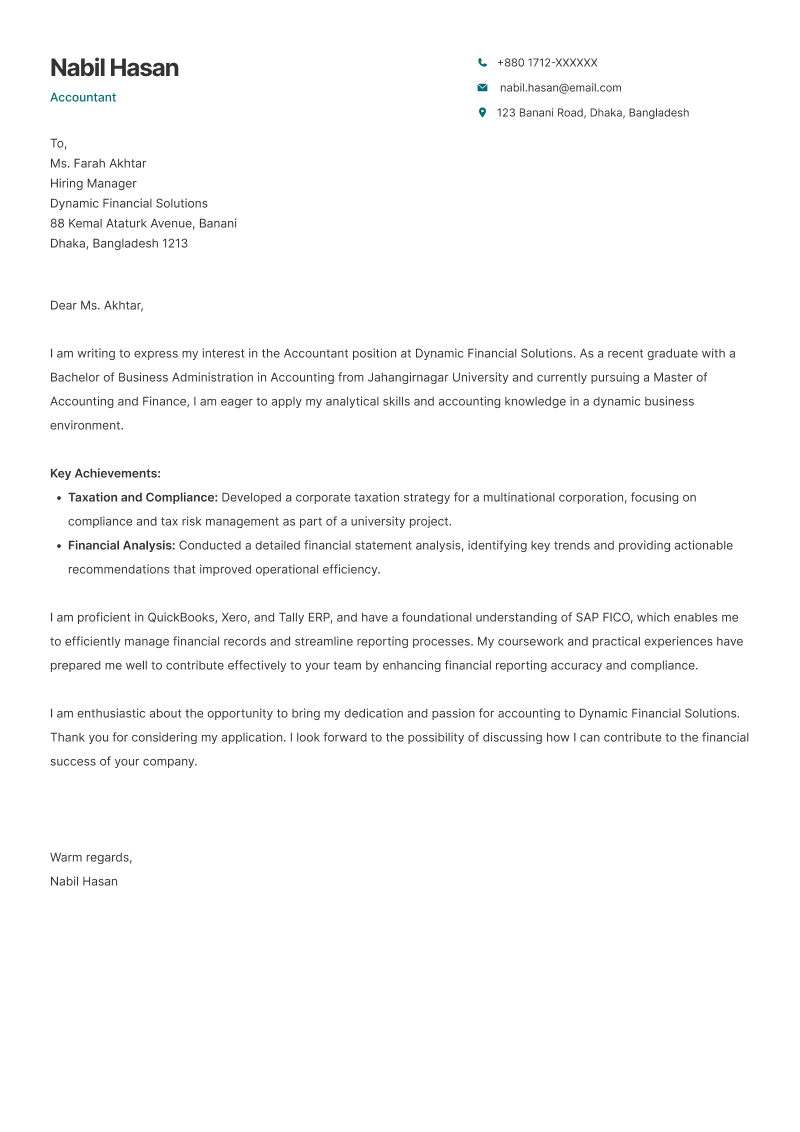As you can see, in all the cover letters above, the job-seeker has cut straight to the point. In the first line, he mentioned his work experience. In the very next line, he has mentioned about his projects and companies he has collaborated with. At the same time, he also assured the employer that he knew his needs.

Common Cover Letter Mistakes for Freshers
When you’re a fresher entering the job market, crafting a compelling cover letter can feel daunting. However, it is a critical opportunity to showcase your enthusiasm, skills, and suitability for the role. Unfortunately, many freshers make common mistakes that can undermine their chances of making a strong impression. Here are some key errors to avoid:
1. Generic Content
One of the most frequent mistakes is submitting a generic cover letter that doesn’t align with the specific job or company. Employers can quickly spot boilerplate text, which signals a lack of genuine interest.
Tailor each cover letter by mentioning the company’s name, the specific role, and how your skills align with their requirements. Personalizing your cover letter not only shows your enthusiasm but also demonstrates that you’ve taken the time to understand the role and the organization.
2. Overemphasis on Academics
While academic achievements are important, overly focusing on them can make your letter feel like an extension of your resume. Employers are also interested in soft skills, extracurricular activities, internships, or volunteer work that demonstrate initiative, teamwork, or leadership.
By providing a balanced view of your academic and non-academic experiences, you can paint a more holistic picture of your potential contributions.
3. Lack of Research
Failing to research the company and its values is a major pitfall. A cover letter should reflect an understanding of the company’s mission and how you can contribute. Without this, your letter may come across as insincere or uninformed.
Highlighting specific company projects or values that resonate with you can make your application more compelling and relatable.
4. Not Showcasing Transferable Skills
Freshers often worry about their lack of professional experience and fail to highlight transferable skills. Think about skills gained through group projects, part-time jobs, or university leadership roles.
These experiences can demonstrate communication, problem-solving, or time management abilities. Emphasizing these skills helps bridge the gap between academic life and the professional world.
5. Using Jargon or Complex Language
A cover letter filled with industry jargon or overly complex language can be off-putting. Keep your tone professional yet conversational.
Clearly articulate your points without trying to impress with unnecessarily complicated terms. Simple, clear language ensures your message is accessible and impactful.
6. Ignoring the Importance of Formatting
A cluttered or poorly formatted cover letter can be a deal-breaker. Use a clean, professional layout with consistent fonts, proper spacing, and aligned margins.
Avoid typos or grammatical errors by proofreading thoroughly. Good formatting not only makes your letter visually appealing but also shows attention to detail.
7. Failing to Convey Enthusiasm
A cover letter that lacks energy or excitement can feel uninspiring. Employers want to see passion for the role and the company.
Use positive language and express genuine enthusiasm about contributing to their team. Demonstrating your eagerness can set you apart as a motivated and committed candidate.
8. Not Including a Call-to-Action
Concluding your letter without a strong call to action is another mistake. Politely express your interest in discussing the role further and include a request for an interview.
This shows initiative and confidence. For example, you could write, “I look forward to the opportunity to discuss how my skills and experiences align with your needs.”
9. Exceeding One Page
Freshers often fall into the trap of writing overly lengthy cover letters. Keep it concise and focused, ideally within one page.
Recruiters often skim applications, so ensuring your cover letter is brief yet impactful increases the chances of it being read in its entirety.
How to Tailor a Cover Letter for Fresher Jobs?
Crafting a tailored cover letter as a fresher can significantly enhance your chances of standing out in a competitive job market. Unlike a generic application, a customized cover letter demonstrates your genuine interest in the role and showcases how your unique skills align with the company’s requirements. Here’s how you can tailor your cover letter effectively:
1. Understand the Job Description
Begin by carefully reading the job description to identify the key skills, qualifications, and responsibilities. Highlight specific requirements that match your abilities, and focus on these in your letter. This approach shows recruiters that you understand what the role entails and that you are a good fit.
2. Research the Company
Conduct thorough research on the company’s values, mission, and recent projects. Incorporate this information into your cover letter by explaining how your goals align with the company’s vision. Mentioning specific initiatives or achievements of the company can further demonstrate your interest and preparation.
3. Personalize the Greeting
Whenever possible, address your cover letter to a specific person rather than using generic salutations like "To Whom It May Concern." This small step reflects your attention to detail and effort in identifying the hiring manager.
4. Showcase Relevant Skills and Experiences
Even if you lack professional experience, highlight transferable skills gained from academic projects, internships, or volunteer work. Use concrete examples to demonstrate how these skills can contribute to the company’s success.
5. Express Enthusiasm
Convey genuine enthusiasm for the role and the company. Use positive language and describe why you are excited about this opportunity. Employers appreciate candidates who are motivated and eager to contribute.
6. End with a Strong Call-to-Action
Conclude your letter by expressing your interest in discussing the role further. Politely request an interview and provide your contact information. A confident closing statement reinforces your proactive attitude.
For additional support, consider using tools like CVBOX.ai to access profession-specific templates and customize cover letters that truly stand out from the competition. This thoughtful approach can help you stand out and land your desired role.
Conclusion
Creating a standout cover letter as a fresher is crucial in making a positive first impression with potential employers. This helpful guide shall provide a structured approach to highlight your skills, enthusiasm, and willingness to learn.
Tailoring the cover letter to each job and focusing on transferable skills, even without extensive work experience can let you effectively showcase your potential. Remember, a well-written cover letter can set you apart from other candidates, increasing your chances of securing interviews and ultimately, your desired job opportunity.









